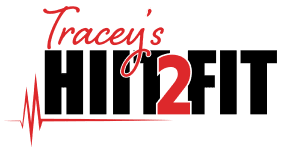Protein is a vital nutrient for managing weight and to help build lean muscle.
Protein raises your metabolic rate and helps you maintain muscle mass during weight loss.
Science shows that people who eat more protein tend to have less belly fat.
It’s important to have a good protein source for every meal. For example:
High protein foods with help speed up recovery after exercise or injury and help curb hunger.


Soluble fiber dissolves in water and forms a gel. It can help lower blood cholesterol and glucose levels.
Studies have shown that this fiber may promote weight loss by helping you feel full so you are less likely to snack or overeat. Soluble fiber may therefore help you to reduce belly fat.
Here are some soluble fiber sources:
This type of fiber promotes movement through your digestive system and increases stool bulk, so it can be of benefit to those who struggle with constipation or irregular stools.
Alcohol can be harmful if you drink too much and can contribute to belly fat.
Studies have shown that heavy alcohol consumption can cause an increased risk of developing excess fat storage around the waist. Cutting back on alcohol may help reduce your belly fat.
You don’t need to give it up completely, but drinking in moderation can definitely help.
It’s recommended to drink no more than 14 units of alcohol a week, spread across 3 days or more. That’s around 6 medium (175ml) glasses of wine, or 6 pints of 4% beer. There’s no completely safe level of drinking, but sticking within these guidelines lowers your risk of harming your health and gaining excess weight.


Sugar-sweetened drinks are any liquids that are sweetened with various forms of added sugars like brown sugar, corn sweetener, corn syrup, dextrose, fructose, glucose, high-fructose corn syrup, honey, lactose, malt syrup, maltose, molasses, raw sugar, and sucrose. These drinks can lead to excess belly fat if not consumed in moderation.
Your brain doesn’t process liquid calories the same way it does food so you’re likely to end up consuming too many calories later on and storing them as fat.
To lose belly fat, it’s best to limit the following drinks:
Drink six to eight glasses of water each day instead. Finally, cut out sports drinks, sugar sweetened drinks and other foods that have a lot of added sugar in them.
HIIT (High Intensity Interval Training) is highly effective as it is time-efficient, improves appetite, cuts cravings and can be customised to suit individual needs. Hiit can be one of the best ways to lose belly fat.
In a recent study, cardiac rehabilitation patients who stuck to a HIIT regimen lost more belly fat, lost more overall body fat, and gained more muscle.
HIIT helps people to burn fat and carbohydrates within a short period of activity. People who do HIIT may also benefit from a revved up metabolism post-workout. HIIT has been shown to increase resting energy expenditure, which means your body is continuing to burn calories at an elevated rate even after you exercise.
A Hiit workout should last a maximum of 30mins. The three stages of any workout still apply, regardless of how long or intense the session is: warm-up, exercise, cool-down.


Resistance training increases muscle strength by making your muscles work against a weight or force. Different forms of resistance training include using free weights, weight machines, resistance bands and your own body weight. A beginner needs to train two or three times per week to gain the maximum benefit.
Resistance training is an important component of burning off belly fat. Since muscles burn off more calories than fat does when the body is at rest, having more muscle tone can help you to burn off more fat.
If you decide to start lifting weights, it’s a good idea to talk with a doctor first and get advice from a certified personal trainer.
Strength training can be an important weight loss strategy and may help reduce belly fat. Studies suggest it’s even more effective in combination with aerobic or Hiit exercise.
If you’re not getting enough sleep, you may be at higher risk for having more unhealthy belly fat.
Sleep is important for many aspects of your health, including weight.
Studies show that not getting enough sleep can be linked to a higher risk of obesity and increased belly fat for some people.
Normally, fat is deposited just under the skin, but a lack of sleep appears to redirect it to the deeper, more dangerous position around the organs.
Getting enough sleep may help prevent increases in calorie intake and appetite that can happen when you’re sleep deprived. Many studies have found that people who are sleep deprived report having an increased appetite and a higher daily calorie intake.


Stress can make you gain belly fat by triggering the adrenal glands to produce cortisol which is also known as the stress hormone. Prolonged stress leads to increased blood sugar levels, which makes cortisol levels rise.
To help reduce belly fat, engage in activities that relieve stress such as
Minimizing stress should be one of your priorities if you’re trying to lose weight.
There are no magic solutions to losing belly fat and it requires a lot of effort, commitments and perseverance.
Trying some or all of the strategies discussed above can help you lose belly fat and improve overall health.
Consider chatting with us today and we can help you with either some Personal Training or Life Coaching.

